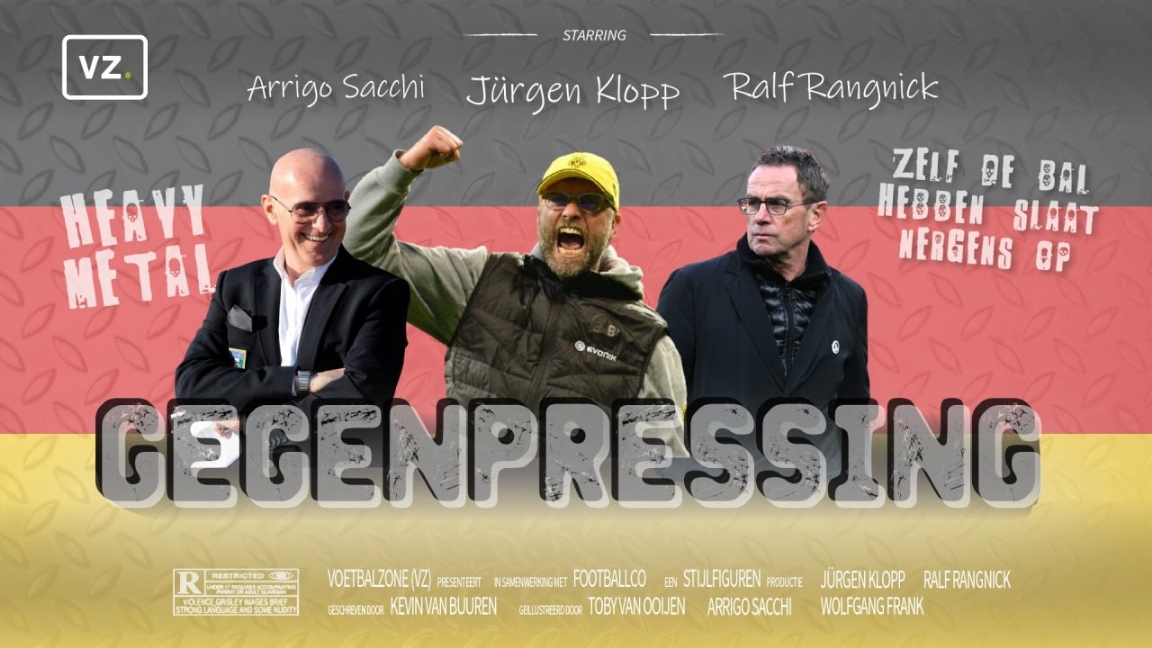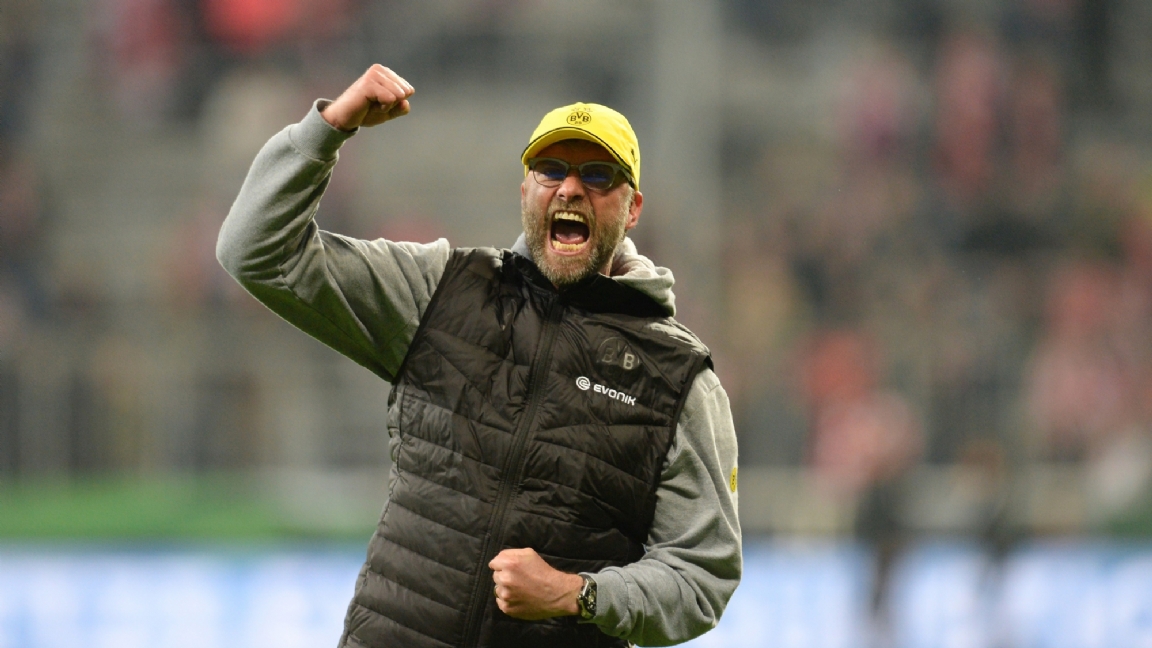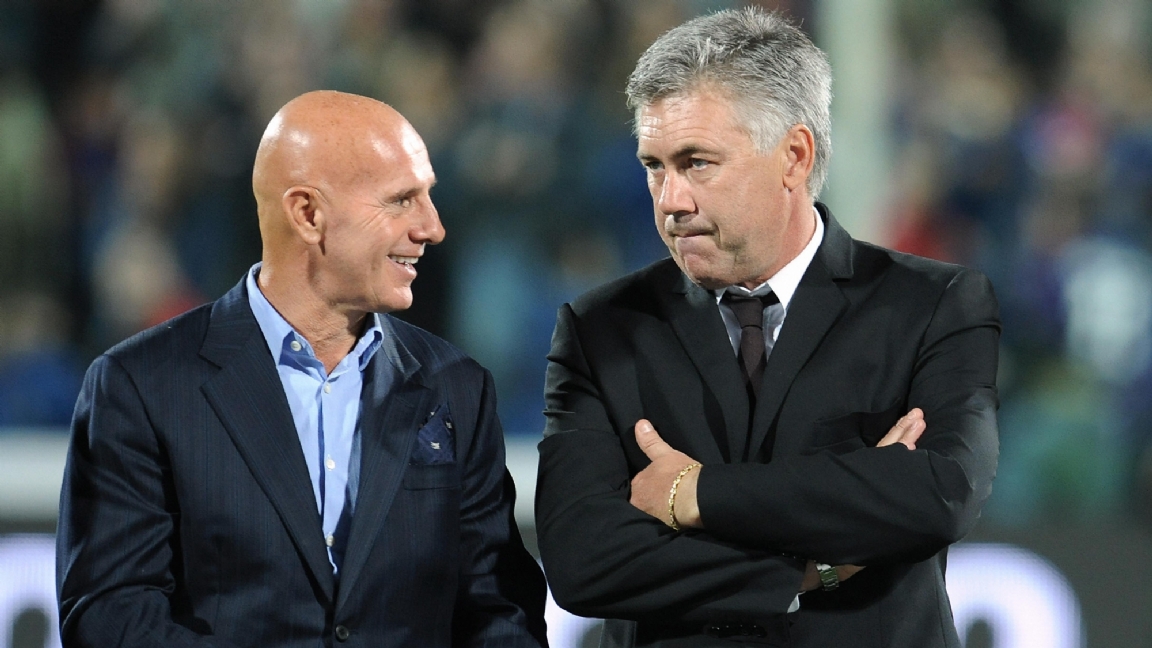![]()


From total football to anti-football and everything in between. Winning the coveted three points has come in all shapes and sizes since time immemorial. In the section Style figures go Football zone along the fields of yesteryear to take a closer look at fabulous formations and special player roles. In this edition: Gegenpressingthe reverse counter that learns to play football from ball loss, instead of possession.
Heavy metal football. This is how Jürgen Klopp described his team’s way of playing in 2015. He is currently head coach at Borussia Dortmund, although he will be presented moments later at Anfield Road as Liverpool manager. When asked by a journalist about his similarities to Arsenal manager Arsene Wenger, Klopp says: “He likes passes. To play like this is like an orchestra, but it is silent music. I like heavy metal more. I like to read after the game that we ran more than the opponent.”
The tactical term turns out Gegenpressing to be called. A lightning-fast switch when the ball is lost, where the opponent is immediately put under pressure again. “Gegenpressing lets you win the ball back closer to the goal. One pass away from a big chance. No playmaker in the world is as good as the right one Gegenpressing”, explains Klopp. He wants his team to immediately raise the volume if the opponent still has to tune the instruments. Right after winning the ball there is that moment. That an opponent is not yet set up to keep the ball in the team. Wingers are too far inside. Midfielders not yet in place. In this time window the opponent is the most vulnerable and the most goals are scored.

Klopp is often even found along the line as the conductor of his own heavy metal band.
In the Netherlands, the theory is given a term by former Vitesse coach Peter Bosz: ‘the five-second rule’. Within five seconds after losing the ball, Bosz wants to see his team in possession again. If that chance is gone, the team has to drop back into a defensive organization, waiting for a new chance. It’s like dropping a candy, which after five seconds is prey for the bacteria on the floor and can no longer be eaten. But long before counter pressing became a household name, the Netherlands was unknowingly one of the founders of offensive defense. Afterwards, it came to Germany via an the Dutch-tinted Italy.
Influence with the Dutch glow
Using the front line as your first defense has already happened in the Dutch national team of trainer Rinus Michels and star player Johan Cruijff. Maybe everything we’ve given a name to now is just part of that whole: total football. “A movement football where positions constantly changed. Where attackers put pressure and therefore defended and defenders built up and therefore attacked”, Michels described the way of playing. Images of the 1974 World Cup give the impression of a kind of youth football, where the Dutch players rush after the ball like madmen. The opponent has no choice but to give it away in a panic. That raw form of defense is turned into an art, in where but Italy?
Arrigo Sacchi made waves at AC Milan from 1987 to 1991, before becoming national coach of Italy for five years. In Inverting the pyramid by Jonathan Wilson he describes his inspiration. “The Netherlands in the 1970s was breathtaking. It was a mystery. The TV was too small. I had to see the whole field to understand what they were doing.” When he realizes that and develops his own style in Milan, Sacchi wins the Serie A, the national cup and twice the European Cup I. AC Milan, with Frank Rijkaard, Ruud Gullit and Marco van Basten in the team, conquers the world with unique forms of defending. Never seen before in Italy, not even in la Grande Inter of Helenio Herrera with it catenaccio. “They had good players, but only one goal: to win. To go down in history you don’t just have to win; you have to entertain,” said Sacchi.

Arrigo Sacchi is, according to France Football, the best coach of all time after Rinus Michels and Sir Alex Ferguson.
He then refined total football the Italian way: calcio total. Offensively, his team controls the ball, defensively it controls the spaces on the field. “Defensively, our players had four points of reference,” explains Sacchi. “The ball, space, direct opponent and his teammates. One of the four determines our movement.” With his way of putting pressure he imposed his will on the opponent. “Our pressure was as psychological as it was physical. And we had different shapes. ‘Partial pressure’, which was more about it [voor je houden]. ‘Total pressure’: winning the ball. ‘Sham pressure’, where we pretended to put pressure, but used that time to recover.” To practice this, Sacchi used ‘shadow games’, with an imaginary ball and trained opponents to move in harmony. “A Real Madrid scout once reported to his club about us: ‘They played a game with eleven players on a whole field, against nobody and without the ball!’”
Klopp’s mentor and German Professor
After the Dutch’s natural instinct undergoes a scientific renaissance, the theory descends on Germany. There Wolfgang Frank gets the almost impossible task in 1995 to save FC Mainz from relegation from the Second Bundesliga. He is inspired by Sacchi and Ajax, because he played at AZ in 1973/74. Frank introduced four-in-line defense. He moved away from a ‘last man’, which had become so popular in Italy through Herrera and in Germany through libero Franz Beckenbauer. In addition, he was one of the official pioneers of zone defense, instead of the classic man marking. Witness to that transformation was a humble midfielder from Mainz: Jürgen Klopp. “Frank was my inspiration as a trainer. Even though the opponent had better individuals than us, as a team we beat them. I learned that from him,” Klopp would later say about his mentor.
Around the same period, starting trainer Ralf Rangnick is also building his career. Also influenced by Sacchi and total football, he popularizes football without a ball as a true study. Rangnick is one of the first trainers to share football tactics with the public. In a famous ZDF SportStudio broadcast in 1998, he shares his vision of putting pressure with the viewer. The presenter tries to be a model student. The audience laughs uncomfortably at times. Rangnick becomes joking of Professor named. Someone in a white lab coat makes eleven men run after a ball. Two decades later, Rangnick is known for his double promotion with Hoffenheim, the organizational revolution at Red Bull Leipzig, his development of Gegenpressing and he is an inspiration for trainers such as Klopp, Thomas Tuchel and Julian Nagelsmann. His nickname does not change. What does change is the degree of respect that lies behind it.
“As a coach”, he explains his profession, “you have to know how you want to play when you have the ball. But you also have to have a plan if you don’t have the ball. So what do your players do? We hate wide passes and back passes. Having the ball yourself makes no sense. Then you have moments of transition: what happens when we lose the ball, and when we win the ball?” Trainers like Klopp and Rangnick don’t base their game on having the ball, but on winning it. “It’s not just about where we win it,” says Rangnick. “Intensity too. The more aggressive we are when we take the ball away, the more intensity and pace there will be in our counter-attack.”
Should the Dutch playing style be overhauled? The Dutch school often assumes possession of the ball. Cruijff once said: “If you don’t have the ball, know you don’t score.” Although he may not have meant that you should possess the ball as much as possible. You just have to take it over from the opponent at the right time. A reverse counter. Where you don’t wait until you have the ball to attack, but dictate the game as a defensive team. For the Germans, there is at least future music in playing football without a ball. This is how games are won. Not with carefully constructed symphonies, but with harmonious heavy metal. Turn the knob and go forward with maximum volume.
